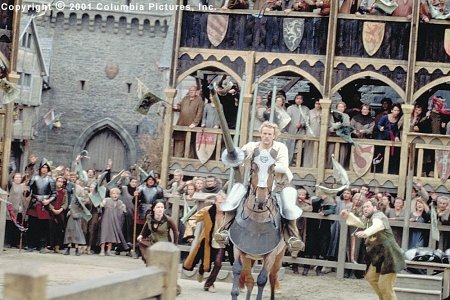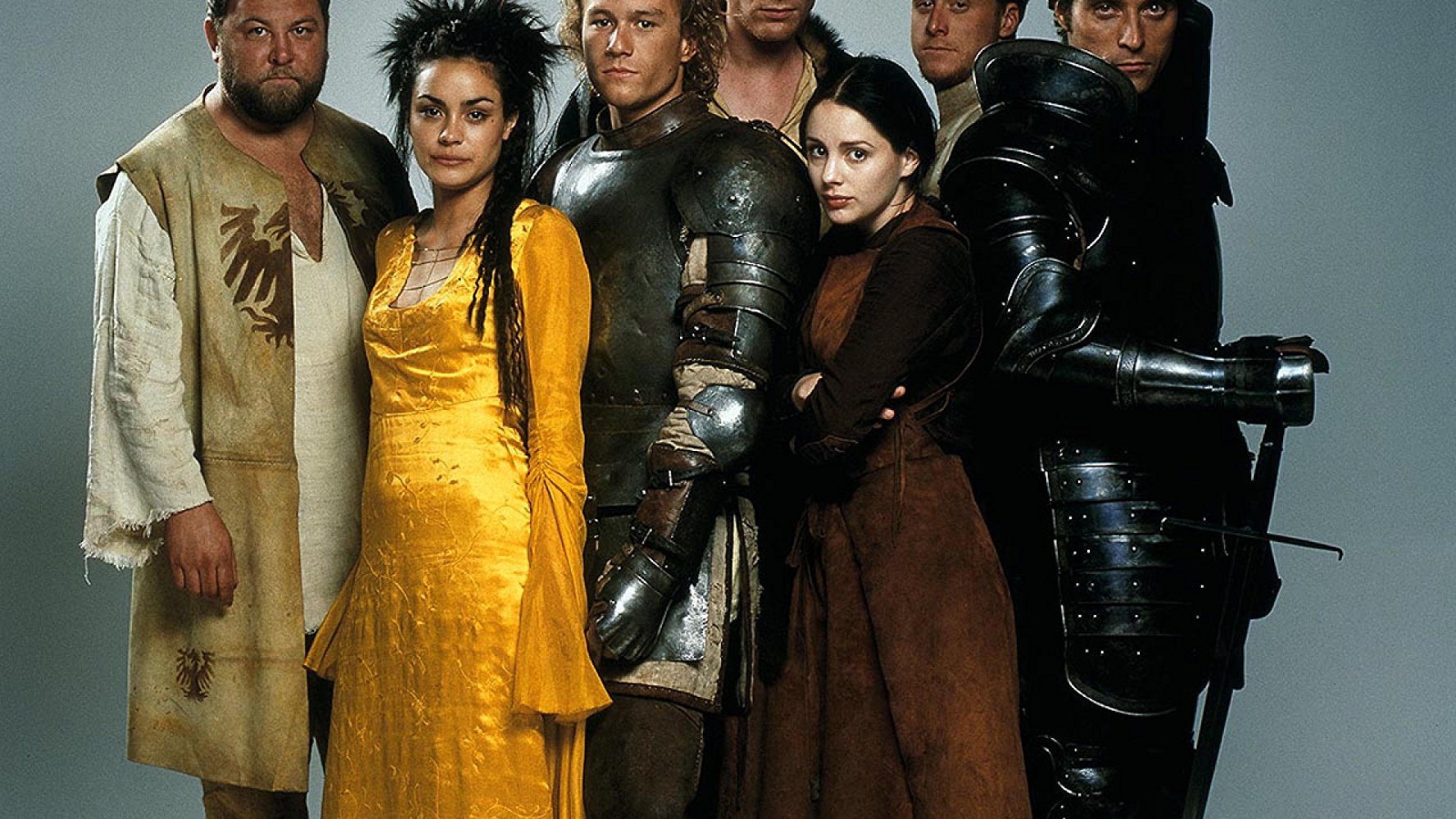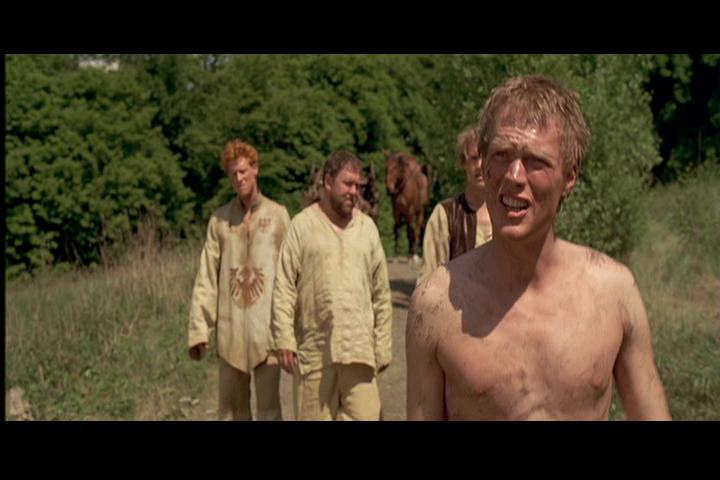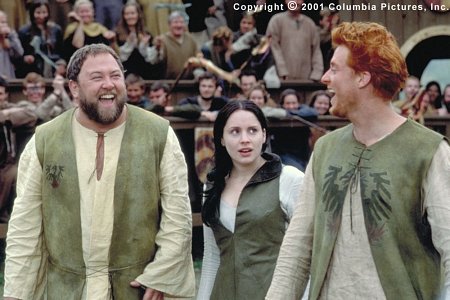Roland is the steady level headed older varlet (Valet in modern parlance) as the film opens with the tragically stricken Sir Ector bleeding out from internal injuries and the main opposition in the discussion when his starving staff of three decides to finish the nearly won tournament by fraudulently putting the lowborn squire Willliam in the saddle masquerading in the final contest as the deceased knight. His summons by the herald and the contest completion consisting of a single passage with the lances suggest Sir Ector was excused for a time in intestinal distress, which conclusion is reinforced by Watt carrying on at how he'd Shat himself to death. After William takes the tournament prize Roland renews his opposition to to continuing the charade down the road and on into the next tournament of the season, as William begins to urge convincingly.William with the victory has become a man on a mission--a man willing to risk it all to Change his Stars --a phrase that impressed him in his childhood before he was apprenticed away from home. At the time, having won, the group of three has funds enough to eat heartily, maintain themselves in relative comfort for a time and for passage back to London.After a confrontation when Roland and Watt are opposed to Williams' hair brained scheme, Roland caves in a dramatic phrase: God Love you WIlliam, for I cannot oppose you. Won over to perpetuating the fraud and trying to win another tournament he becomes the chief trainer of William as befits being longest with the knight, as later flash-back scenes show, being some half-a-decade older than William when the seven year old was apprenticed to Sir Ector twelve years before. Soon after training frugally from a campsite in the woods, the party encounters Chaucer the writer, who is trudging buck naked headed for the same tourney in Rhone. Chaucer devines the fraud and is bought off and so joins the party as expert forger--he can provide William and company expertly crafted patents of nobility; for the tourney ahead is closed solely to those having five or more generations of noble ancestors. Watt and Chaucer get into a few fracases from the outset, and Roland becomes a referee of sorts. He is joined and allied later in reining in Watt, William and Chaucer's enthusiasms when Kate the blacksmith joins the group, the widow also being somewhat older and steadier of personality.While reluctant to enable William's dream of changing his stars, at nearly every stage Roland comes forth with support or key skills (such as playing staff tailor and money manager) while Watt and Chaucer's more volatile antics push the plot in more humorous ways. When after William is outed as a peasant and put in stocks before a threatening crowd, staunch and stalwart, the sturdily built Roland stands with Kate in front of a hostile crowd holding weapons to keep the mob at bay. When Prince Edward knights Sir William, the groups loyal love and protection is part of what the Prince cites as to why he is intervening.When William struggles to be successful in the man-to-man confrontation with the cheating Count Adamar, it is Roland who holds the veto power after Adamar's cheating seriously wounds Williams shoulder, to the point he cannot hold a lance or wear armor. William begs the others to lash the lance to his arm, and Watt hesitates without Roland's blessings as well on Williams request. Williams' instructions place his life in serious jeopardy, but it is to Roland that William pleads and that the others to veto Williams determined desire to go forward despite the risk. He relents and William carries the day and the group achieves a success. There is some suggestion Kate and Roland may become a couple, for they rarely appear in a scene separately from mid-film when Kate makes William new lighter modern armor.
Show less «






